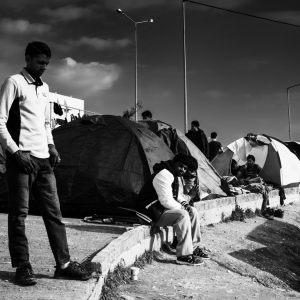The Stream, September 18, 2020: Great Lakes Reach Record Water Levels for August
The Global Rundown
Great Lakes Michigan and Huron set record levels for the eighth month in a row. Over a million people have been displaced this year in Africa because of torrential rains. No rivers in the U.K. met standards for chemical status, according to new data from the Environmental Agency. Eleven are dead in Uganda after a dispute over water turned violent. A new study has revealed a link between poor mental health and water insecurity in the United States.
“Water is vital to health, of course, but also to human dignity. For the world’s wealthiest country to be segregating access, it takes a toll. We’re only beginning to appreciate the level of water worry that poor people in this country carry.” – Nadia Gaber, lead researcher from the department of anthropology, history and social medicine at the University of California San Francisco. A new study revealed a significant link between water insecurity and psychological distress in the US, where millions of households are disconnected each year because of overdue bills. The mental health impact was greatest among people who had recently received a shutoff notice, although residents who had previously been disconnected, and those who felt bills were unaffordable also reported psychological distress. The Guardian
In context: Millions of Americans Are In Water Debt
Latest WaterNews from Circle of Blue
‘A Lot of Catastrophe’: Louisiana Water Systems Still Reeling from Hurricane Laura – Nearly three weeks after the Category 4 storm, more than 30 water systems in the state are still not operating.
Thirsting for Solutions – Across the U.S., aging infrastructure, legacy pollution and emerging contaminants are creating a growing urgency to pay attention to the quality of the water we drink. This story was co-published with Ensia, a solutions-focused nonprofit media outlet reporting on our changing planet.
Western Wildfires Damage, Contaminate Drinking Water Systems – As they tear through forests and developed areas, fires in California, Oregon and Washington have destroyed water infrastructure and released chemical contaminants.
By The Numbers
582.09 in (1478.5 cm) The depth of Lake Michigan and Lake Huron during the month of August, setting another record high for the eighth month in a row. Although the water level in the lakes actually declined over the last month, they are still 1.2 inches (3.1 centimeters) higher than the record level set in August of 1986. Water levels from the two Great Lakes are considered to be the same because they are connected by free-flowing water from the Straits of Mackinac. The seasonal decline of the Great Lakes water levels has begun and typically ends in March. MLive
1 million + The number of people who have been displaced across Africa due to torrential rains that are threatening already vulnerable food supplies. Some communities in Ethiopia have recorded the heaviest rains in a century, while 200 ancient pyramids in Sudan are in danger due to unprecedented water levels in the river Nile. Even the arid coastal nation of Senegal has not been spared. Earlier in September the country recorded 124 millimeters of rain in seven hours—the volume it would normally receive between July and September during their rainy season. Telegraph
Science, Studies, and Reports
Figures released by the U.K.’s Environmental Agency show for the first time that no English river has achieved good chemical status, suggesting pollution from sewage discharge, chemicals and agriculture are having a huge impact on river quality. The EA assessed 4600 rivers, lakes and other waterways and none were rated good on both ecological and chemical standards. There has been no improvement in the state of the nation’s rivers since 2016 when the data was last published. Environment Agency
On the Radar
Uganda is investigating the deaths of 10 refugees and a local teenager in a dispute over who should have had priority at a borehole shared between locals and South Sudanese refugees at a settlement in the northwest of the country. Although locals blamed the refugees for the death of the 16-year-old Ugandan cattle herder, Uganda’s minister for disaster management and refugee affairs said that the real problem was the community’s limited resources. The East African nation is often cited as a model of peaceful coexistence between refugees and locals, but a lack of support from international donors in recent years has brought with it an inability to provide basic services such as water and electricity to both communities. Reuters
Jane is a Communications Associate for Circle of Blue. She writes The Stream and has covered domestic and international water issues for Circle of Blue. She is a recent graduate of Grand Valley State University, where she studied Multimedia Journalism and Women, Gender and Sexuality Studies. During her time at Grand Valley, she was the host of the Community Service Learning Center podcast Be the Change. Currently based in Grand Rapids, Michigan, Jane enjoys listening to music, reading and spending time outdoors.






Leave a Reply
Want to join the discussion?Feel free to contribute!